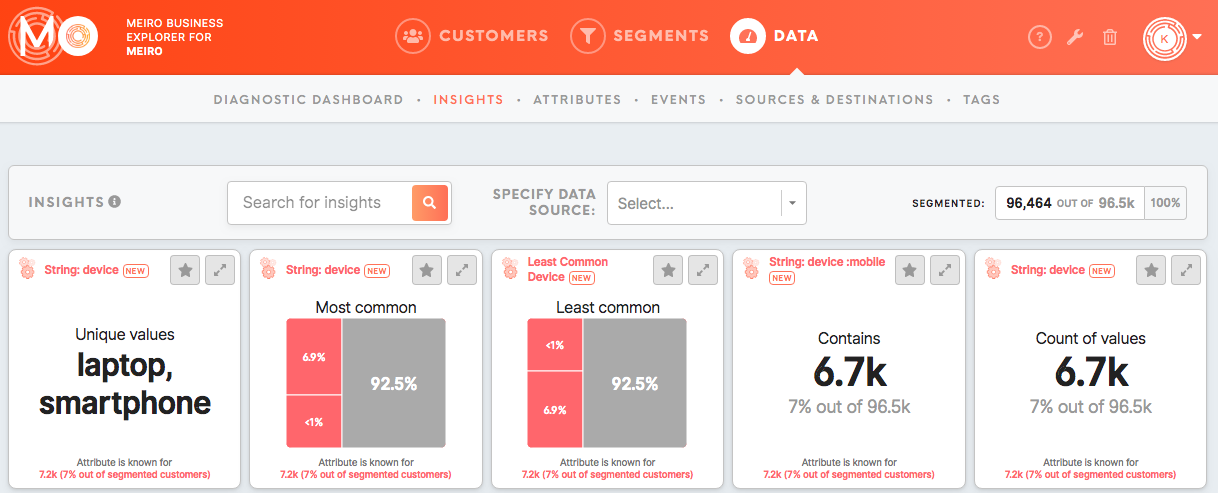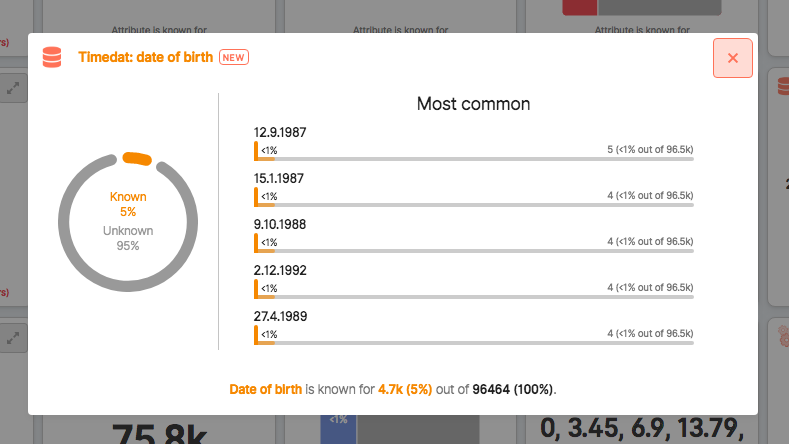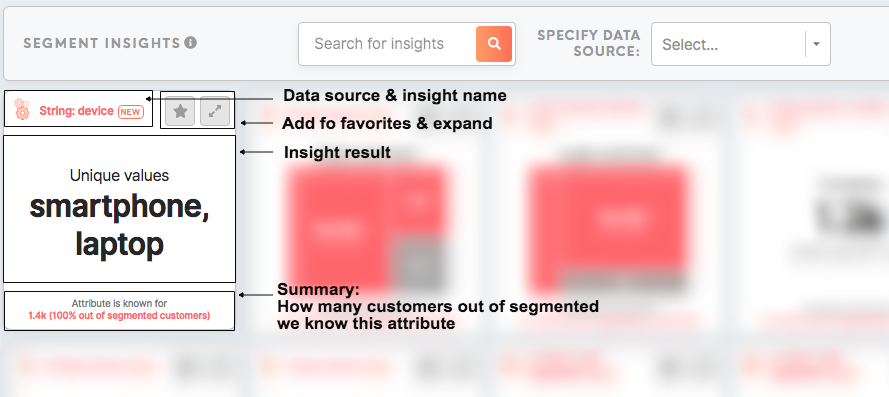Insights - What are they for and how do they work
Insights are a set of analytics tiles.
Insights are in:
- Data tab/ Insights tab with insight values for your whole customers' database
- Segment Detail/ Insights tab with insights for each segment
For each tile, you can see an expanded view of the tile that is slightly bigger than an original tile, also it may contain additional data that will help you to understand the meaning of the tile.
Each insight tile has a similar structure, it contains:
| Data source | For the chosen attribute. It is assigned automatically as each attribute is calculated from a particular data source. |
|
Name of the insight |
Name given to an insight. |
| Add to favorites button | It is possible to add or remove from favorites, that will move insight to the top of the tab. |
| Expand button | Expand tile to see more insights (if available) and make insight bigger. |
| Insight result | Attribute and condition for the insight to be set in the Administration tab. |
| Summary | Display how many customers out of segmented customers we know this attribute. |
What I can learn from my insights and what I can do with that knowledge
With insights, you can quickly dive into analytics of your segmented audience, as well as the whole customer's dataset.
Depending on your marketing objectives and strategy it can be data connected to your revenue (average spending, max-min spending), customer engagement (highly engaged customers across the channels or within a particular channel), customer behaviour (most common URLs clicked, common locations, devices) and any other attribute that is available for your dataset.
Simply define what data matters to you, setting this up lays within clicks away.
Knowing this will help you quickly understand your customers' behaviour that matters to you across data sources better, which will improve your marketing strategies.
You may learn about behaviour that will inspire you to build other segments for your perfect audience.
Most common use cases:
- Checking data quality (eg. whether segment contains a lot of customers with known PII/ with permission to contact).
- Checking best channel for activation (eg. channel with the highest engagement).
- Measure campaign performance (eg. most common UTM source/medium/campaign that brings web visitors).
- Identify the most common devices/country/OS which are useful for targeting.



